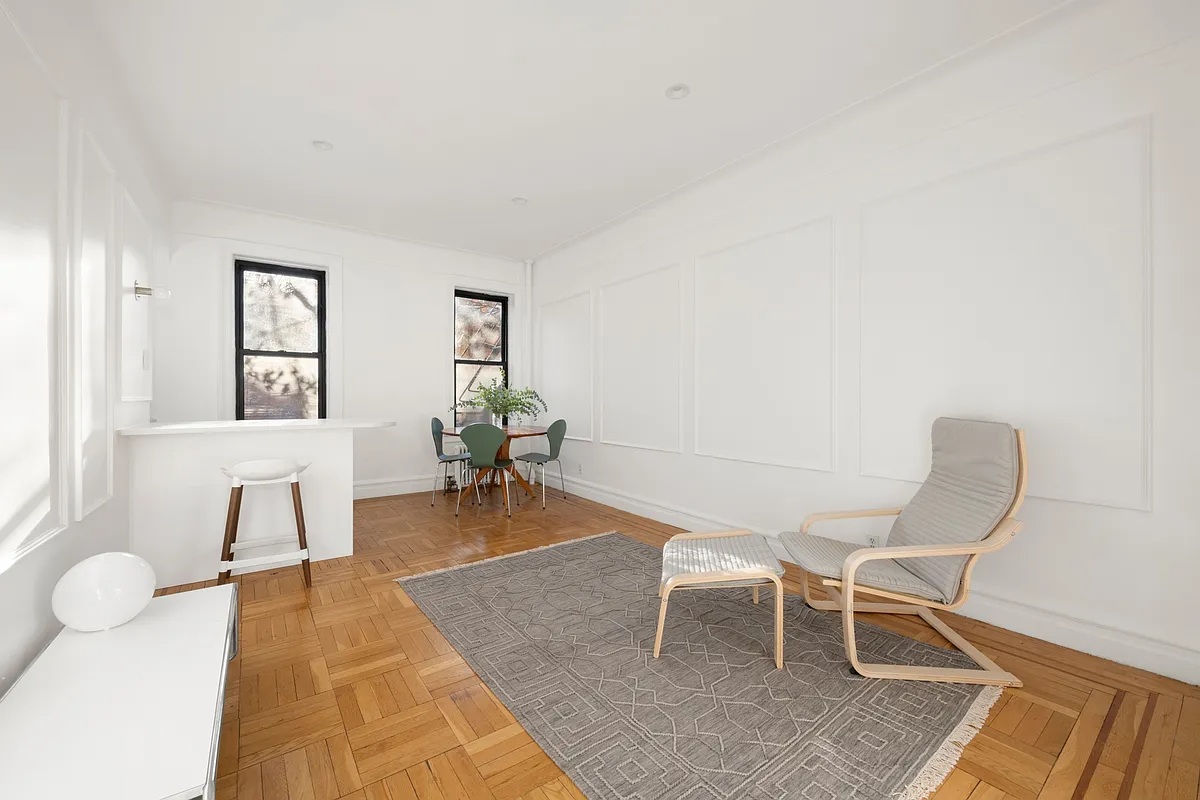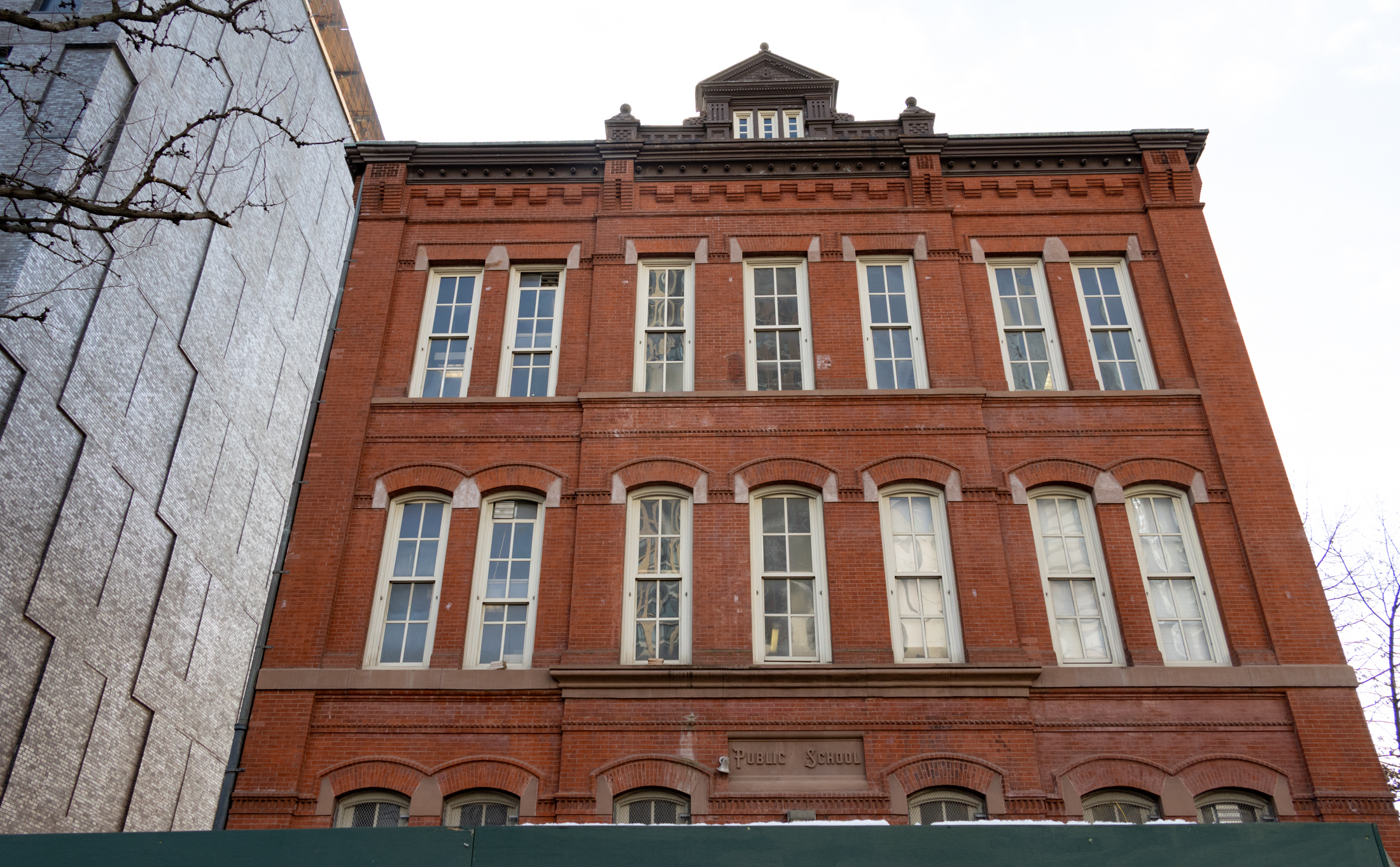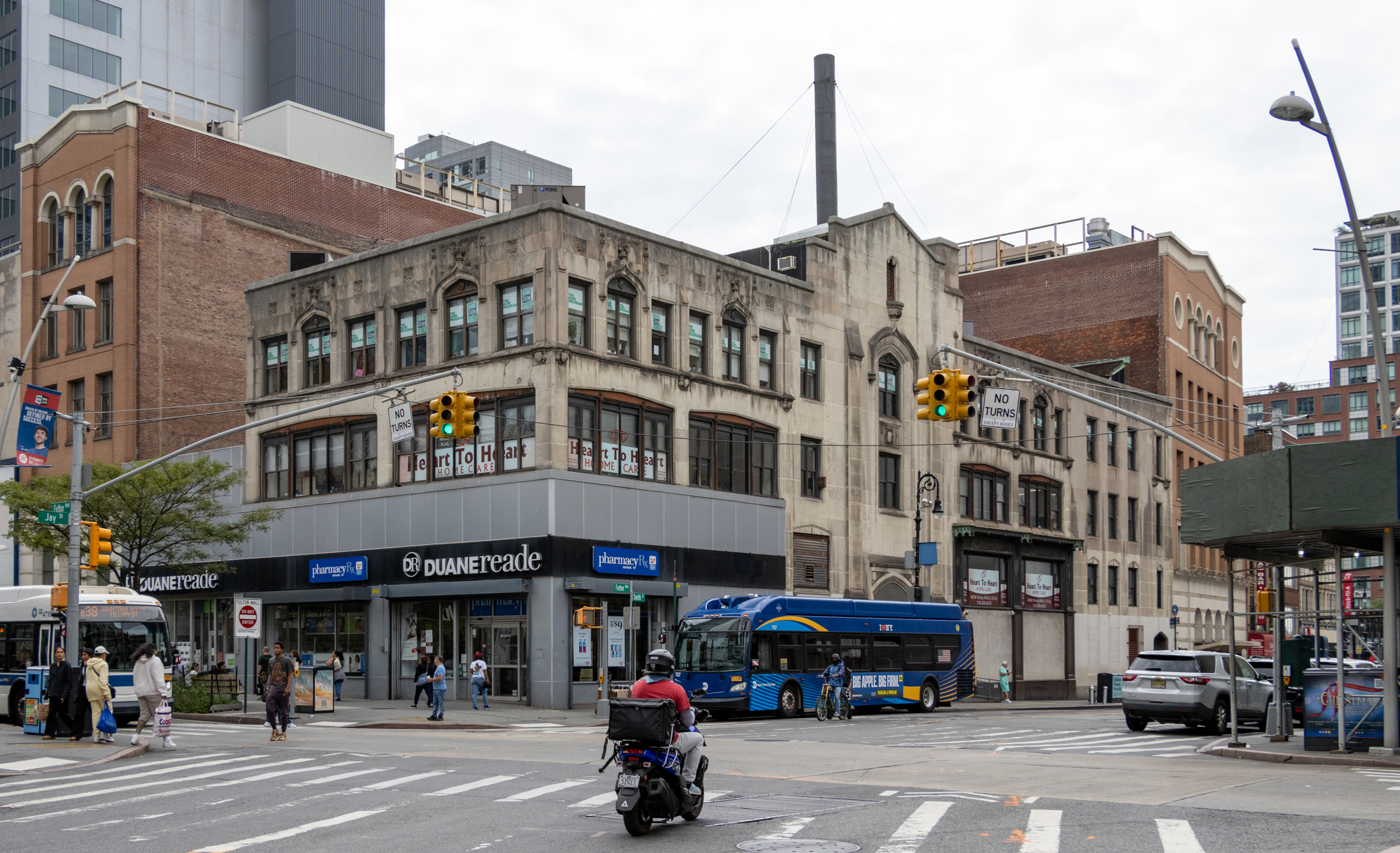Condo of the Day: 98 Bergen Street, #2
Brownstone condo conversions don’t always work very well, but unless we’re getting fooled by the fisheye, we’d say that this floor-through at 98 Bergen Street in Boerum Hill turned out very nicely. Granted the second bedroom is mighty small and there’s only one bathroom, but the finishes and layout seem to work pretty nicely. Plus…


Brownstone condo conversions don’t always work very well, but unless we’re getting fooled by the fisheye, we’d say that this floor-through at 98 Bergen Street in Boerum Hill turned out very nicely. Granted the second bedroom is mighty small and there’s only one bathroom, but the finishes and layout seem to work pretty nicely. Plus the common charges are only a combined $286 per month. The apartment itself is asking $750,000. Within reach?
98 Bergen Street [Prudential Real Estate] GMAP P*Shark





I am sorry I missed your answer earlier. I will try to answer seriously, although it’s probably for the birds.
Firstly, I should say I don’t actually believe prices will go up 1% a year. I think prices are going to go down another 12-15% in the next 2 years, and then slowly climb afterward, so that in 6 years prices will be approximately 0-5% above today. Same story on rentals, except a bit ahead of the game: 7-10% additional decline, than a slow rise so that in 6 years rentals will be 7-10% above today. RS rents that are below market will continue catching up.
Secondly, I acknowledge my scenario is not necessarily found in the recorded past, but it doesn’t mean it can’t happen. The increase of 1998-2008 was a once in a century event, with much speculation (similar to late 19th-century booms and busts), in my opinion. As a result, the deflation will also be deeper than in our lifetime.
Thirdly, I feel I need to acknowledge I am guessing. I don’t know what’s going to happen, but this is still a serious and considered guess. I am bringing my experience and my knowledge of unregulated markets (1870-1930) to bear. I really believe that we ignore history at our peril, if you want to have a peek at unfettered speculation and its perils, read the first pages of Nicholas Nickleby. Our IPOs and CDOs have nothing on the United Metropolitan Improved Hot Muffin and Crumpet Baking and Punctual Delivery Company.
Anyway, to the meat of your argument: of course the results will have much to do with your assumptions about price and rent movements. New York has high transaction costs though, so unless you are expecting high increases, there is almost no hope to preserve your equity over 6 years. And for this sort of apartment (1 bedroom tarted up as a convertible 2), 6 years is probably longer than most would stay.
I ran the numbers again to find the exact increase that will get a buyer their money back after 6 years, assuming rents increase by 3% a year. Just to break even, prices will have to go up 4.5% a year, ie 30% above today’s prices in 6 years. I personally believe it’s a pipe dream.
Maly,
That’s true, you can always plug in assumption that rationalize your decision (either way).
In the past 34 years, New York City housing prices experienced two periods of rapid increase—
1980–1989 and 1996–2006—and two periods of decline—1974–1980 and 1989–1996. Both booms were substantial, and both busts, although difficult, were relatively small. Overall, prices increased by 250% from 1974 to 2006.
If you think we’re looking at six years of 1% appreciation – which would be historic – then you’re better off renting.
http://furmancenter.org/files/Trends_in_NYC_Housing_Price_Appreciation.pdf
Now let’s take a gander at your assumption of 2% rent increases. The RGB Rent Index estimates the overall effect of the Board’s annual rent increases and vacancy
increases on stabilized contract rents each guideline year (October 1 to September 30). The RGB Rent Index includes the percentage increases for one- and two-year leases, the estimated increase for vacancy leases and increases, if applicable, due to the low rent supplement or the minimum
rent. IOW, this document is not the RGB annual increases, but rather what was happening in the overall market, stabilized and free market.
http://www.housingnyc.com/html/about/intro%20PDF/appendixU.pdf
As you can see, at no time did rents rise at a rate of 2% or less for any one year. Your scenario calls for SIX YEARS of historically low rent increases.
To summarize, if homes appreciate at a lower rate than at any time since the data has been tracked, and rents increase at a lower rate for six years over what they have increased for any one year in the last forty years, then you are absolutely correct – you’re better off rent.
If you plug in modest numbers like 3 percent rent increases and 3-4 percent home appreciation, you are better off buying.
The reader may decide which is more likely to happen.
BoerumHill, I hate to hoist you on your own petard, but I went to the link you posted, and guess what?
“If you stay in your home for 6 years, renting is better.
It will cost you $173,525 less than buying, an average savings of $28,921 each year.”
That’s assuming a 25% dp, 1% rise in home prices and 2% rise in rent. I have given this a lot of thoughts and come to the conclusion that buying right now is the ultimate luxury consumption, fine if you can afford it, but definitely not financially astute.
That 745k WL listing is a comp. It’s not an exact but if someone was looking for apartments somewhere in that ballpark this would be something to consider especially spending that amount of money.
Maly,
If you think 2,100 versus 3,400 makes it a no-brainer, you haven’t given the subject much thought.
http://www.nytimes.com/interactive/business/buy-rent-calculator.html
The question is whether you will be there for more than or less than 6 years.
By 11217 on June 30, 2010 6:07 PM
Using your numbers:
Park Slope apartment per year = $44,712 + 0 (school) = $44,712
Boreum Hill apartment per year = $39,624 + $24,000 (school)= $63,624
…
Did that make sense when you typed it?
For us, it was more like public school, let’s spend 900-999K.
Private, 650K.
As for the contention if 400 or 500 a month makes a difference, it doesn’t when you are at a certain stage in your home buying. I don’t know anybody who goes out and buys the first place they see. Most people see 10 or 20 or 60 or 200 units. Along the way their price point gets adjustments (generally, up because they want more room/amenities/whatevs). Or they say eff this, I’m going to Bayridge or Wantaugh or wherever they perceive the value to be more worthwhile.
BUT AT SOME POINT, you settle into a range that you are comfortable with in terms of affordability and amenities/features/sq footage. At that point, no way are you comparing two places that are $500 dollars apart – for an amortized mortgage monthly payment, that’s about $125K on a 30 year/5%. When you are really serious about pulling the trigger and going to open houses is something more than a weekend hobby, your range is nowhere near that great.
or you could just have the rented the 3rd floor for $2,100 (thank you, Streeteasy.) That’s a rather large difference in cost.
Now that I look at it, it’s actually a terrible comp. Unless you hate Park Slope, you’d be a fool not to buy that one if these were the 2 options. ;))
Using your numbers:
Park Slope apartment per year = $44,712 + 0 (school) = $44,712
Boreum Hill apartment per year = $39,624 + $24,000 (school)= $63,624